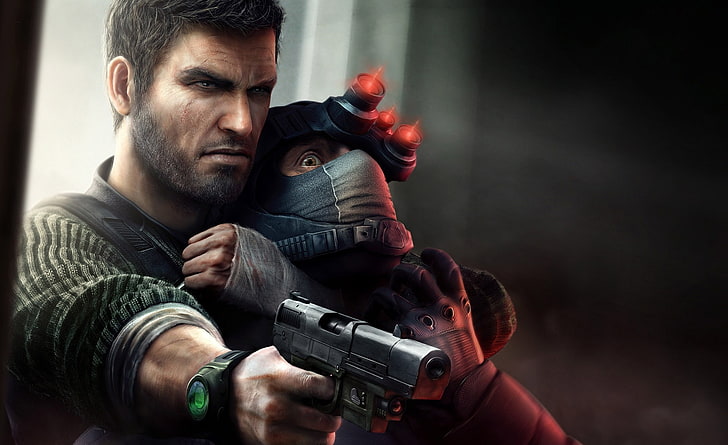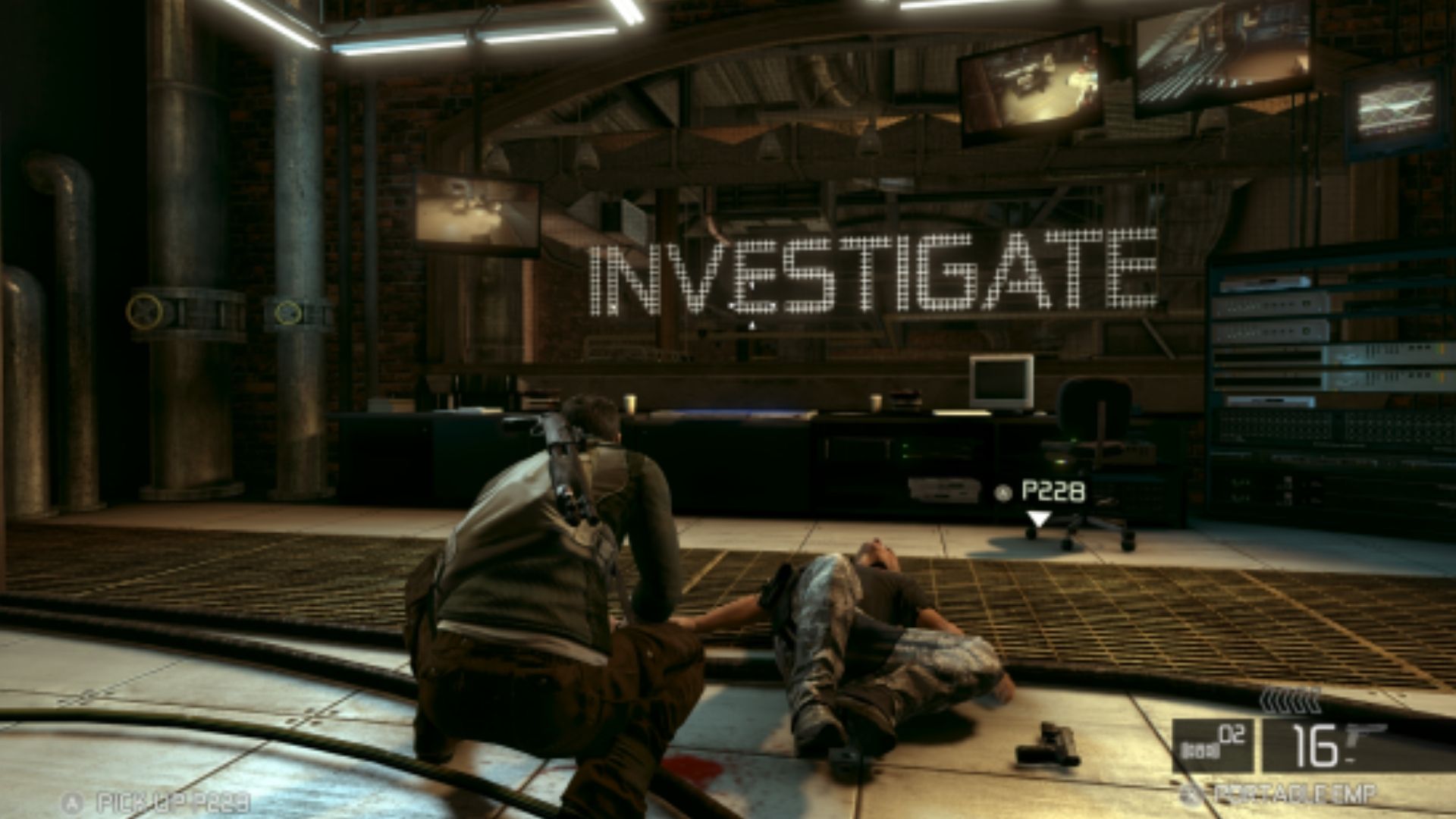
Tom Clancy’s Splinter Cell is arguably one of the best stealth-action franchises in recent gaming history, which much like its contemporaries has been lost to the shadows for quite some time now. Splinter Cell: Conviction, which was one of the later entries in the franchise, is generally considered to be the most divisive, as some fans of the series consider it to be the black sheep of the franchise and others – one of the best. Context is of the utmost importance here, since Splinter Cell’s history has a lot to do with what became of Splinter Cell: Conviction. With Double Agent and Chaos Theory before it, the series had established its brand of stealth as a thinking man’s game.
Getting anywhere without a firm understanding of the game’s interweaving systems was a death sentence in both of these games, which obviously enough requires a fair bit of trial and error as well as perseverance, both of which were thrown out the window for Splinter Cell: Conviction. For this reason alone, Splinter Cell: Conviction remains a contentious point for fans of the series. However, judging the game on its own merits reveals a number of thoughtful design decisions that all serve to provide a different experience within the Splinter Cell umbrella – which many fans – including myself – have fallen in love with over the years.

For starters, the presentation is a notable step-up from previous entries in the series. As the first Splinter Cell built from the ground up for the PS3 and Xbox 360, the environments and character models look a lot more detailed with high-resolution textures and better lighting. However, a standout highlight is a way in which all relevant information regarding the objectives and tutorials are plastered on the game world itself – which gets the job done without resorting to boring menu screens unlike previous entries in the franchise.
Sam Fisher himself feels great to control, with smooth and responsive animations that serve to make the overall pace of the gameplay faster. Splinter Cell: Double Agent watered down the intricate light and sound meters of Chaos Theory, and Conviction takes it a step further by making Sam more nimble than ever – both in general movements such as crouch walking and moving from cover to cover as well as parkouring across pipes and shimmying across ledges. This does rob the system of its depth with no requirement to manage movement speeds and sound levels at the same time, but works to great effect in the larger push towards making Sam an aggressive panther continually hunting enemies from the shadows.
Guns also feel great to use in Splinter Cell: Conviction, although most of the time you will be relying on the standard-issue silenced pistols and melee attacks for getting rid of goons. The biggest addition to the Splinter Cell: Conviction is inarguably Mark and Execute – which allows Fisher to mark a handful of targets in his line of vision and then click a single button to dispose of them instantly with headshots. A far cry from the previous entries in the franchise, the Mark and Execute is equal parts an integral part of Conviction’s combat loop and an entry ticket for impatient gamers to the Splinter Cell franchise.
The AI is also toned down in complexity when compared to previous entries in the franchise. Enemies don’t have as complex behavior trees and the difference between guards being alert and indifferent to your presence isn’t as blurry as say, Chaos Theory. A silhouette of Sam Fisher appears at his last known position, and you are encouraged to constantly adapt according to the situation and play around with this silhouette and nearby hiding spots to slowly and steadily thin the herd of enemies. This feeling of a dynamic combat system is further exasperated by the fact that there aren’t any manual saves, which are replaced by constant checkpoints – meaning you cannot repeatedly save after every small move for the perfect run.
All of this comes together quite beautifully, making Chaos Theory a thrill ride through and through. It’s markedly different than the tactical charm of its predecessors, forgoing the stop-and-think approach with a new figure it out as you go approach. Getting through levels without triggering alarms or killing a single entity was an enjoyable challenge in previous entries, but Conviction’s multitude of design decisions make this a near-impossible feat for some levels – which further solidifies the intent with which the developers want you to play this game.
The story hasn’t been a strong suit for Splinter Cell, which is also true for Conviction. Most games have revolved around conducting espionage operations across a multitude of locations – which is expected from a Tom Clancy game. Splinter Cell: Conviction is a notably more human take on this formula, as Sam abandons the Third Echelon in order to learn more about his daughter Sarah’s death which leads him on a bread crumb trail towards a larger conspiracy. It’s forgettable, sure – but retains an irrefutable charm thanks to its darker tone which is carried straight on over from Double Agent.

Splinter Cell: Conviction falls prey to most of the tropes that were so prevalent in the seventh generation. A darker tale with similarly edgy characters and higher stakes, scripted set-pieces of breaching through doors in slow motion – and of course, regenerating health. This led many to believe that Splinter Cell: Conviction, in many ways, was suffering from an identity crisis between wanting to be an action-adventure game and a hardcore stealth experience.
There is some truth to that assumption because Splinter Cell: Conviction wasn’t originally envisioned as the game as we got in 2010. An earlier build of the game shown to the press during the time was a radically different game, which focused more on Hitman-esque social stealth and hand-to-hand combat. After a mostly negative reception to this build, the developers changed gears mid-development and created the Splinter Cell: Conviction that we know today.
However, the fact that the developers took some bold strides in making Sam Fisher nimbler and establishing this new hide-and-seek nature of stealth is remarkable and deserves quite a bit of praise. That being said, Conviction’s brand of stealth wasn’t the right direction for the future of the series.
Looking back on Splinter Cell: Conviction today feels like seeing a time-capsule, which is reminiscent of all things wrong with seventh-generation game design in many ways. However, the vigor with which the developers designed the game around evolving Splinter Cell’s brand of stealth as a much faster and more dynamic take is what most importantly makes Splinter Cell: Conviction a good game, if not what one hell of a game for some fans.
Note: The views expressed in this article are those of the author and do not necessarily represent the views of, and should not be attributed to, GamingBolt as an organization.













